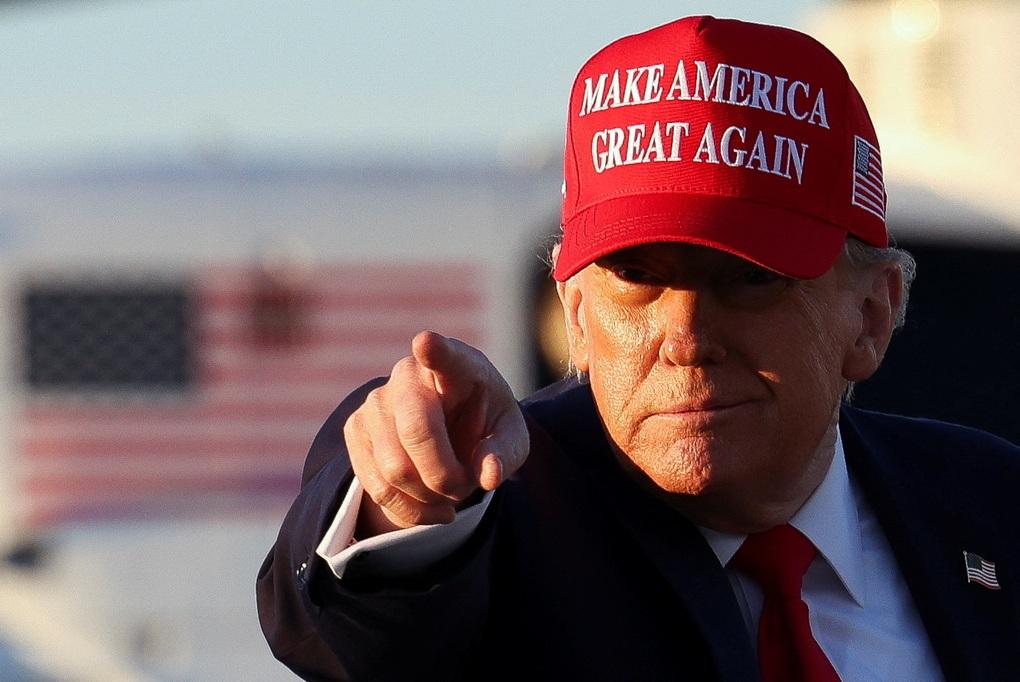Trump Revives Controversial Greenland Seizure Talk, Suggests Military Force Might Be Used

In a shocking new twist, Donald Trump has reignited his controversial interest in Greenland, suggesting the possibility of seizing the island to secure its vital strategic and economic value. In a recent interview with NBC, Trump explicitly stated that the U.S. might consider using military force to take control of Greenland, calling it “critical” for both American and global security.
“We need Greenland very badly,” Trump declared during the interview. “It’s not just an economic asset, but a vital piece of real estate.” He further added that Greenland’s sparse population would make it an easy fit for U.S. governance, claiming it would be a territory the United States would “cherish.” The remarks quickly drew ire from global leaders and set off a firestorm of debate.
Greenland’s new Prime Minister, Jens-Frederik Nielsen, was quick to respond to the former president’s statements. “We will never, ever be a piece of property,” Nielsen fired back, firmly rejecting any notion of Greenland becoming part of the U.S. or being annexed through force. His remarks reflect the deep-seated national pride of Greenlanders, who have long been proud of their sovereignty and self-determination.
The talk of Greenland being seized by force isn’t the first time Trump has stirred controversy over territorial matters. In 2019, Trump famously suggested the idea of purchasing Greenland from Denmark, which was swiftly rebuffed by both the Danish government and the people of Greenland. Now, with his latest statements, the former president appears to be revisiting his aggressive approach, intensifying the already fraught discussions on global geopolitics.

But the focus on Greenland isn’t the only territorial claim Trump is making. He also mentioned the idea of Canada potentially becoming the 51st U.S. state, a suggestion that sent shockwaves through both American and Canadian political circles. Trump admitted that he has yet to discuss this idea with Canadian Prime Minister Mark Carney but claimed he was “open to it.” According to Trump, the U.S. “subsidizes Canada,” and he described the potential removal of the border as a “real estate dream,” saying, “What a beautiful country it would be.”The notion of annexing Canada is not a new one for Trump, who has long harbored an admiration for the country’s vast natural resources and strategic location. However, the idea of Canada being absorbed into the U.S. as the 51st state is seen by many as unrealistic and more of a rhetorical provocation than a viable policy proposal. Canada, which has a long history of sovereignty, would never entertain such an idea lightly, and the international community would likely view it as an aggressive overreach.
Trump’s comments have already sparked intense debate, with critics accusing him of reckless, provocative rhetoric aimed at stirring nationalist sentiments rather than crafting real policy. Some see it as a strategic move, aimed at reshaping global power dynamics, while others argue it’s simply another distraction from pressing domestic issues. As the world reacts to Trump’s renewed territorial ambitions, the question remains: are these statements bold, strategic moves in a rapidly changing world, or simply unrealistic provocations designed to test the waters and create headlines? Regardless, one thing is clear — the debate over global borders, sovereignty, and the U.S.’s role in shaping the international order will continue to rage on.






